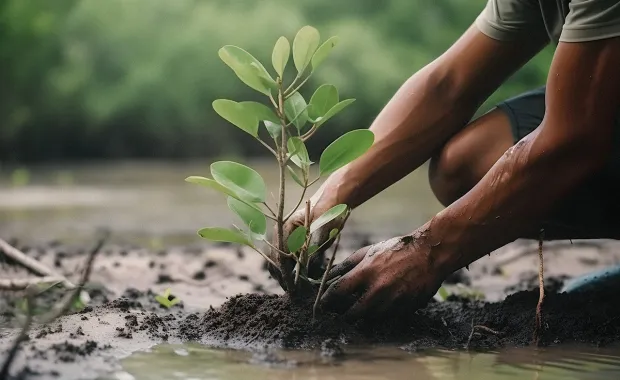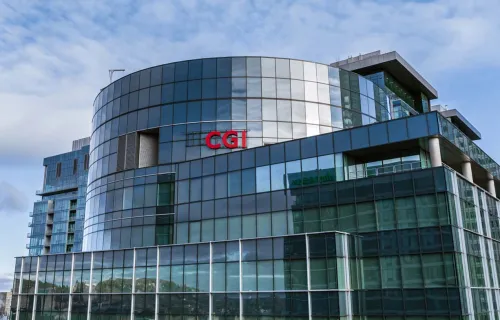We are committed to taking proactive actions that benefit the health of our local ecosystems, biodiversity and the well-being of present and future generations. This includes funding and actively supporting sustainable development, waste management and conservation programs.
In India, we have invested in the sustainability of several local communities through projects that have a direct environmental and social impact. These projects involve collaboration with NGO partners, local government bodies, communities, and CGI volunteers who contribute to building awareness.
Offsetting carbon emissions through biogas plants
Wet waste management can be a very challenging task. When incorrectly segregated and added to landfills, such waste leads to serious sanitation and health issues. To help address this problem in two major metropolitan cities in India—Bengaluru and Chennai—we partnered with Saahas, a not-for-profit organization working in circular economy and sustainable waste management practices.
We helped establish biogas plants with a total capacity of processing 3 tons per day (TPD) of food waste in Bengaluru (2.5 TPD) and Chennai (0.5 TPD). The project has eliminated the disposal of 1,000 tons of food waste into landfills annually. In addition, the biogas generated from the food waste, equivalent to 31,500 kg of liquid petroleum gas (LPG) annually, is shared with nearby community organizations through a revenue model, helping to promote circularity.
Since September 2020, the project has helped to avert 647 metric tons (MT) of food waste from landfills and generated 16 MTs of LPG equivalent eco-friendly biogas. Diverting the waste from landfills, as well as the methane recovery, has significantly reduced greenhouse gas (GHG) emissions, a major contributor to climate change. Additional benefits include:
- Better hygiene due to waste segregation and quick removal
- Lower living costs by replacing LPG with low-cost biogas
- Model for other municipalities to adopt and promote a circular economy and reduce LPG dependency
Supporting the revival of a lake and farmers’ livelihoods
Water scarcity has impacted several farmers in India, forcing them to migrate to cities to make a living. The Kolar district, near Bengaluru in Karnataka, India, is one such region that has experienced drought for several years.
We collaborated with an NGO called SayTrees to fund a unique project to support the revival of Suddukunte Lake in Kolar, which has been dry for over ten years. The goal was to restore 1.5 kilometers of water channels to farmlands for irrigation. The channels were de-silted to ensure rainwater inflow to the lake, and the embankments were restored to prevent water overflow. These steps also resulted in the recharge of groundwater in the village.
The project employed 20 local women for 30 days, helping them generate income to support their families while also enabling local farmers to return to their farms for cultivation. After a long dry spell, nearly 22 water wells in the village are at full capacity.





